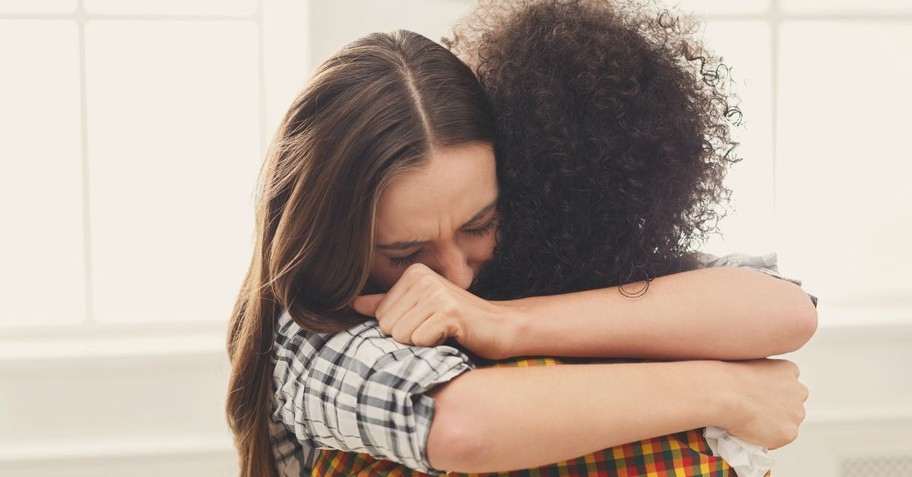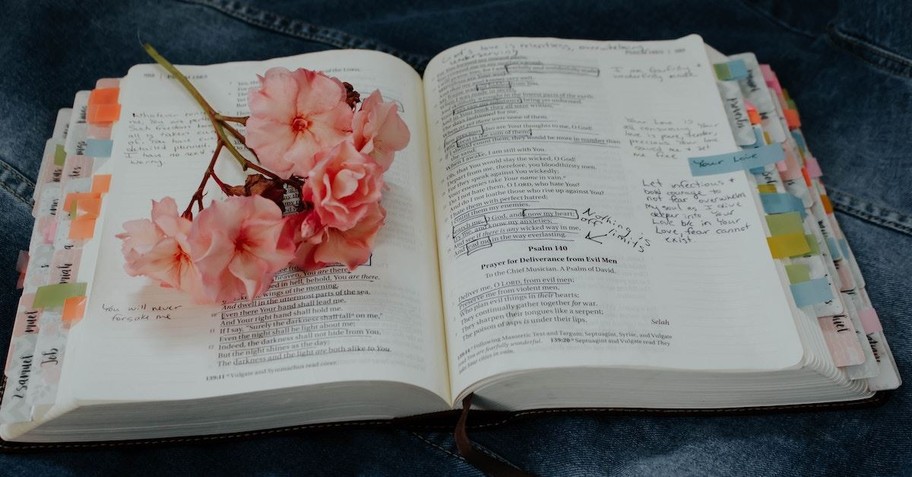How to Get Healthy Friendships, Even After They Hurt You

I’m not sure whether the gal sitting across from me intended to reveal the situation between her and her friend, but she did. Her words tumbled quickly--like icy water over slippery rocks. At times, though, she slowed, cautiously measuring her word choice. She was careful to avoid gossip, and made an effort to camouflage anger (she didn’t want to appear “unchristian” around me), but when her eyes involuntarily brimmed with tears, she realized not even her best efforts could mask her pain.
There’s not a woman alive who hasn’t been hurt by a friend at one time or another.
While friendships are one of God’s greatest gifts, friendship can also be a source of great sorrow. It hurts us when friends hurt us.
What happens in the heart of a woman who’s been betrayed? Left out? Misunderstood? Is there any way we can minimize our chances of being hurt? Or hurting others? And most important, how do we deal with friendship hurts in a Christ-honoring way?
Photo Credit: ©Unsplash/Priscilla Du Preez
1. Choose friends wisely
“As iron sharpens iron, so one friend sharpens a friend” (Proverbs 27:17 NLT).
An old Irish Proverbs says, “Good friends are like four leaf clovers; lucky to have and hard to find.” While it may be hard to find genuinely good friends, it’s not impossible; we just need to know what to look for.
In my Bible study “Get Healthy Friendships” I penned the following definition of a good friend: “A good friend propels you to be the best version of yourself; the one God had in mind when He created you.”
Why is this definition important to remember? Because too many women make friends based only on shared interests, common life stage, or mutual enjoyment. None of things is wrong; in fact, they are important. But for a person to morph from being a friend to being a good friend, she must raise the bar on our life, not lower it.
And we must do the same for her.
A thousand unnecessary hurts can be avoided if we choose friends wisely.
Photo Credit: ©Unsplash/Clay Banks

2. Be the friend you wish you had
I almost hesitate to mention the importance of being the kind of friend we’d like to have, were it not for the sheer number of women I’ve encountered who don’t put this principle into practice. It’s unrealistic (and dare I say it? Immature) to expect a friend to propel us to be the best version of ourselves, if we don’t propel our friend to be the best version of herself.
If you want your friend to remain loyal, keep her secrets. If you want your friend to speak well of you, refuse to gossip about her. If you want your friend to be happy at your success, be happy for her success.
Jesus made relationships simple: “Do to others what you would have them do to you, for this sums up the Law and the Prophets” (Matthew 7:12).
Photo Credit: ©GettyImages/Milkos

3. Believe the Best, Until You are Certain of the Worst
So you’ve chosen your friends wisely, and you’ve sought to be a good friend yourself, but your friend hurts you anyway. What then? Believe the best, until you are certain of the worst.
Hurt comes in two forms: 1) intended and 2) unintended.
It’s easy to assume the sign of a good friend is that she will never, ever hurt us. So. Not. True.
A good friend may hurt us, but she’ll be remorseful if she did. It’s this kind of heart--one that genuinely doesn’t want to offend or hurt another--that marks a good friend.
When we believe the best before we assume the worst, we give our tender emotions and out-of-control thoughts (Why didn’t she invite me? What did she mean by that comment? I can’t believe she did that!!!) a chance to catch up with reality. If a good friend hurts you assume the hurt was unintended, until you know otherwise.
Photo Credit: ©GettyImages/Jun

4. Identify Qualities of an Unsafe Friend
As we’ve just seen, hurt can be intended or unintended. While it’s rare for friends to admit they intended to hurt us, the fact remains: some friends do intend to hurt us. Even Jesus had his Judas.
Gossip. Manipulation. Betrayal. Rejection. Put-downs. One-upmanship. Lies. Drama. These are just some of the qualities you’ll find in an unsafe friend.
How do you know if you’re in relationship with an unsafe friend? An unsafe person cares more about herself than the friendship or friend. Her actions will prove it.
While it’s crucial to identify unsafe friends, it’s equally important to recognize these behaviors in us. When we gossip, hold grudges, harbor jealousy, leave out, or lie, we are the unsafe friend.
What do you do with an unsafe friend? Procdeed with caution!
What do you do if you are the unsafe friend? Proceed to change!
Photo Credit: ©Pexels/Dani Mota

5. Handle Hurt in a Healthy Way - Step One
One of my dearest friends is the former Women’s Ministry Director at my church-and one of the wisest, most godly women I know. Recently I learned of her automatic response when one woman wants to talk about an issue she’s having with another woman.
“Have you talked to her about this before coming to me?”
If the answer is “no”, my friend stops the conversation in its tracks. “I can’t talk to you about this, until you’ve talked to the other person. God says I can’t get involved unless you’ve already tried to work it out.”
Jesus’ instructions to believers who’ve been offended are explicit: “If your brother or sistersinsgo and point out their fault, just between the two of you. If they listen to you, you have won them over” (Matthew 18:15).
More than one woman hasn’t been happy with her response--initially. But my friend’s refusal to get involved has forced countless women to handle hurt in a healthy way; the way God intended. In the end, most are glad they did.
Photo Credit: ©Unsplash/RachelLynetteFrench

6. Handle Hurt in a Healthy Way - Step Two
I suspect the reason so many believers don’t go directly to the person who wronged them is the faulty belief that there is no good way to point out a fault.
But there is.
- Start by affirming the relationship (“I value our friendship. I value you.”)
- State the facts (“When you said______________”, When I found out I wasn’t invited”, etc.…)
- Share your feelings or thoughts (I felt ______________; I thought__________)
- Wait for their response. (Their response will indicate what you do next--if anything)
- Forgive and move on (either as closer friends, or with the realization that the friendship is not one that should be close).
Photo Credit: ©Unsplash/Evan Kirby

7. Understand Different Types of Friendships
All people are created equal; all friendships are not.
Some friends are in our lives for mutual encouragement, some for mentoring, and some friends grace our lives for a moment. God uses each of these types of friendship. Healthy people know which friend falls into which category.
Picture the various types of friendship like this:
- Mutual Friends: Equal giving and receiving
- Mentor Friends: One friend gives more than the other
- Momentary Friends: Level of giving varies, but longevity is for a season
When we correctly assess the type of friendship our friends fall into, expectations are realistic and we’re freed to love other women for who they are, just as they are.
Friendship is one of God’s very best gifts--a gift we all need. The beautiful unfolding of friendship happens best when we choose friends wisely, handle hurt biblically, and assess friendships accurately.
Donna Jones: Donna Jones is a national speaker, author and pastor’s wife who is blessed with good friends. But she’s also a woman who knows what it feels like to be hurt by friends. Donna considers coffee an essential food group, and she’s the mom of three young adult kids who frequently sit on her kitchen counter, just to chat. Connect with Donna and find out about her free online Bible studies at www.donnajones.org or on Instagram @donnaajones.
Photo Credit: ©GettyImages/Antonio Diaz
Originally published August 29, 2022.





